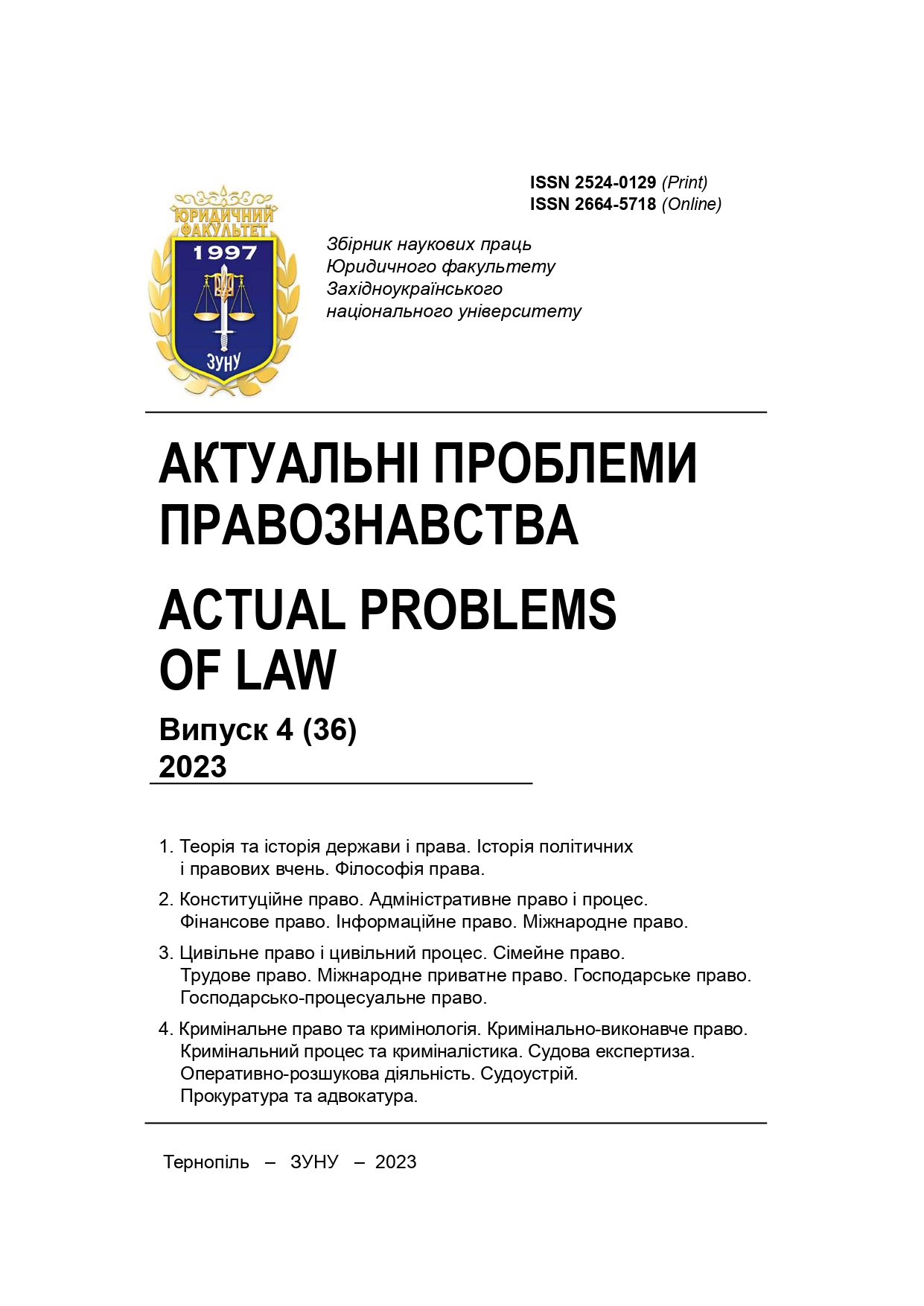Shareholder agreement and founding agreement of business associations
DOI:
https://doi.org/10.35774/Keywords:
shareholder agreement, founding agreement, business partnership, limited partnership, corporate law, corporate legal relations, corporate rightsAbstract
It is analyzed the key differences between a shareholder agreement and a founding agreement of a joint-stock company. The differences are analyzed both from the point of view of the doctrine of corporate law and from the point of view of regulatory provisions regarding these private law structures.
It is noted that the distinction between civil and legal transactions in corporate law is of great importance for the doctrine of corporate law. The separation of the shareholder agreement from the founding agreement seems to be particularly relevant.
The author supports the point of view of those scientists who prove that the subject of a shareholder agreement is the organizational rights possessed by a member of a corporate-type legal entity, and their management. The subject of such agreements may be a certain redistribution of organizational rights, regarding which there is no mandatory regulation, including at the level of local regulatory acts. Within such an agreement, the parties agree on the period and limits of exercising the subjective rights of the owner of corporate rights.
It is noted that the basis for distinguishing founding and corporate contracts should be not the commonality of the goal mediated by the contract, but its very essence. The main purpose of the founding agreement (agreement on the establishment of a business company) is to establish the procedure for company’s establishing, the conditions for joint activities related to the creation of the company, determining the size of the authorized capital, shares in the authorized capital of each of the shareholders, etc. For corporatized legal entities such as joint stock company, limited liability company, and additional liability company, the founding agreement does not act as a founding document, so its conclusion is not mandatory.
It is concluded that the shareholder agreement differs from the founding agreement of a joint-stock company according to such criteria as: 1) the purpose of the agreement; 2) subject composition of the agreement; 3) term of validity of the agreement; 4) payment of the agreement; 5) the form of the agreement.
References
Vasylieva V.A. Korporatyvni pravochyny: poniattia ta osoblyvosti. Problemy okhorony prav subiektiv korporatyvnykh pravovidnosyn : Materialy Mizhnarodnoi naukovo-praktychnoi konferentsii. 23-24 veresnia 2011 r. Ivano-Frankivsk, 2012. S. 25-28.
Startsev O. V. Pidpryiemnytske pravo. K., 2006. 208 s.
Zelisko A. V. Zasnovnytskyi dohovir yurydychnykh osib korporatyvnoho typu: vidminnist vid inshykh dohovirnykh konstruktsii. Vdoskonalennia pravovoho rehuliuvannia prav ta osnovnykh svobod liudyny i hromadianyna : Materialy Vseukrainskoi naukovo-praktychnoi konferentsii molodykh vchenykh i aspirantiv. Ivano-Frankivsk. 2013. S. 56-58.
Tsyvilne pravo Ukrainy: u 2 t. Tom 1. Pidruchnyk / Za zah. red. V. I. Borysovoi, I. V. Spasybo-Fatieievoi, V. L. Yarotskoho. K., 2007. 480 s.
Luts V.V. Kontrakty u pidpryiemnytskii diialnosti. K. 1999. 560 s.
Zelisko A.V. Pidpryiemnytski yurydychni osoby pryvatnoho prava yak subiekty tsyvilnykh pravovidnosyn. Ivano-Frankivsk. 2016. 445 s.
Syhydyn M.M. Korporatyvnyi dohovir: dys. … kand. yuryd. nauk: 12.00.03. Ivano-Frankivsk, 2016. 236 s.
Pro aktsionerni tovarystva: Zakon Ukrainy №2465-IX vid 27 lypnia 2022 roku. URL: https://zakon.rada.gov.ua/laws/show/2465-20#n1048





